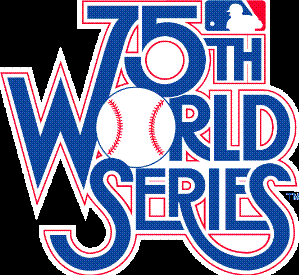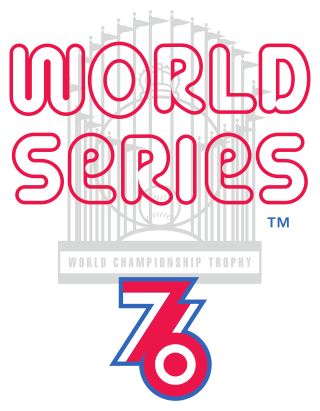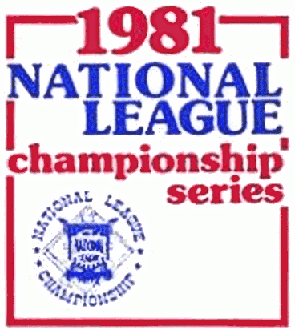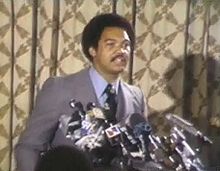
Reginald Martinez Jackson is an American former professional baseball right fielder who played 21 seasons in Major League Baseball (MLB) for the Kansas City / Oakland Athletics, Baltimore Orioles, New York Yankees, and California Angels. Jackson was inducted into the National Baseball Hall of Fame in 1993.

The 1981 World Series was the championship series of Major League Baseball's (MLB) 1981 season. The 78th edition of the World Series, it was a best-of-seven playoff played between the American League (AL) champion New York Yankees and the National League (NL) champion Los Angeles Dodgers. It marked their third Series meeting in five years and was their 11th overall Series meeting. The Dodgers won the Series in six games, as the Yankees had done in the teams' prior two Series meetings, in 1977 and 1978. This was the Dodgers' first title since 1965, their first victory over the Yankees since 1963, and third overall Series win over the Yankees.

The 1978 World Series was the championship series of Major League Baseball's (MLB) 1978 season. The 75th edition of the World Series, it was a best-of-seven playoff played between the American League (AL) champion New York Yankees and the National League (NL) champion Los Angeles Dodgers. In a rematch of the previous year's World Series, the Yankees won, four games to two, to repeat as champions and to win their 22nd World Series. As of 2023, it remains the most recent World Series to feature a rematch of the previous season's matchup.

The 1976 World Series was the championship series of Major League Baseball's (MLB) 1976 season. The 73rd edition of the World Series, it was a best-of-seven playoff played between the National League (NL) champion Cincinnati Reds and the American League (AL) champion New York Yankees. The Reds swept the Series in four games to repeat as champions, avenging their 1939 and 1961 World Series losses to the Yankees. The 1976 Reds became, and remain, the only team to sweep an entire multi-tier postseason, one of the crowning achievements of the franchise's Big Red Machine era. They also became the third NL team to win consecutive World Series, and remain the last to do so.

The 1974 World Series was the championship series of Major League Baseball's (MLB) 1974 season. The 71st edition of the World Series, it was a best-of-seven playoff played between the American League (AL) champion Oakland Athletics and the National League (NL) champion Los Angeles Dodgers. The Athletics won the series, four games to one; after splitting the first two in Los Angeles, Oakland swept their three home games to close it out.

The 1977 American League Championship Series was a five-game series played between October 5 and 9, 1977, between the Eastern division champion New York Yankees and the Western division champion Kansas City Royals.

Carroll Christopher Chambliss is an American professional baseball player and coach. He played in Major League Baseball from 1971 to 1988 for the Cleveland Indians, New York Yankees and Atlanta Braves. He served as a coach for the Yankees, St. Louis Cardinals, New York Mets, Cincinnati Reds, and Seattle Mariners.

Michael Augustine Torrez is an American former Major League Baseball (MLB) starting pitcher. In an 18-season career, he pitched for the St. Louis Cardinals (1967–1971), Montreal Expos (1971–1974), Baltimore Orioles (1975), Oakland Athletics, New York Yankees (1977), Boston Red Sox (1978–1982), and New York Mets (1983–1984). As a member of the Yankees, he won two games of the 1977 World Series over the Los Angeles Dodgers. He batted and threw right-handed.
The 1978 American League Championship Series was a best-of-five playoff pitting the New York Yankees against the Kansas City Royals for the American League pennant and the right to represent the American League in the 1978 World Series. The Yankees defeated the Royals for the third straight year to win the pennant.
The 1977 National League Championship Series was a best-of-five matchup between the West Division champion Los Angeles Dodgers and the East Division champion Philadelphia Phillies. It was the ninth NLCS in all. The Dodgers beat the Phillies three games to one and went on to lose the 1977 World Series to the New York Yankees.
The 1978 National League Championship Series was a best-of-five matchup between the West Division champion Los Angeles Dodgers and the East Division champion Philadelphia Phillies. It was the tenth ever NLCS and a rematch of the 1977 series between the same teams. The Dodgers beat the Phillies three games to one before they lost the World Series to the New York Yankees.

The 1981 National League Championship Series was a best-of-five series to end the 1981 National League season. It was the 13th NLCS in all. The series featured the first-half West Division champion Los Angeles Dodgers and the second-half East Division champion Montreal Expos. The Dodgers won the series three games to two over the Expos, thanks to a ninth-inning home run in Game 5 by Rick Monday in what has ever since been referred to as "Blue Monday" by Expos fans.

John William Johnstone Jr. was an American professional baseball player and television sports announcer. He played in Major League Baseball as an outfielder from 1966 to 1985 for the California Angels, Chicago White Sox, Oakland Athletics, Philadelphia Phillies, New York Yankees, San Diego Padres, Los Angeles Dodgers, and Chicago Cubs.

The Dodgers–Yankees rivalry is a Major League Baseball (MLB) rivalry between the Los Angeles Dodgers and the New York Yankees. The Dodgers are a member club of the National League (NL) West division, and the Yankees are a member club of the American League (AL) East division. The rivalry between the Dodgers and Yankees is one of the most well-known rivalries in Major League Baseball. The two teams have met 11 times in the World Series, more times than any other pair of teams from the American and National leagues. The initial significance was embodied in the two teams' proximity in New York City, when the Dodgers initially played in Brooklyn while the Yankees played in the Bronx. After the Dodgers moved to Los Angeles in 1958, the rivalry retained its significance as the two teams represented the dominant cities on each coast of the United States, and since the 1980s, the two largest cities in the United States. The Yankees currently lead the regular season series 9–8. Although the rivalry's significance arose from the two teams' numerous World Series meetings, the Yankees and Dodgers have not met in the World Series since 1981. They would not play each other in a non-exhibition game until 2004, when they played a 3-game interleague series. Nevertheless, games between the two teams have drawn sellout crowds.
The 1978 season ended with the Los Angeles Dodgers winning their second straight National League pennant and losing to the New York Yankees in the World Series again. Dodger coach Jim Gilliam died at the end of the season and his uniform number, 19, was retired by the team prior to Game 1 of the World Series; the team also wore a black memorial patch with Gilliam's number during the World Series. Unlike the previous Dodger team, no member of the team hit 30 home runs after seeing four members hit that mark the previous season.
The 1977 Los Angeles Dodgers season saw Tommy Lasorda in his first full season at the helm of the Dodgers, replacing longtime manager Walter Alston as manager of the team near the end of the previous season. The Dodgers won the National League West by 10 games and defeated the Philadelphia Phillies in four games in the NLCS, then lost to the New York Yankees in the World Series. This edition of the Dodgers featured the first quartet of teammates that hit 30 or more home runs: Steve Garvey with 33, Reggie Smith with 32, and Dusty Baker and Ron Cey, who both hit 30. The Dodgers duplicated this feat again 20 years later in 1997.
In the 1978 Major League Baseball season, the New York Yankees defeated the Los Angeles Dodgers to win their second consecutive World Series, and 22nd overall, in a rematch of the prior season's Fall Classic. The Yankees overcame clubhouse turmoil, a mid-season managerial change, and a 14-game mid-July deficit in the American League East en route to the championship. All four teams that made the playoffs in 1977 returned for this postseason; none of the four returned to the postseason in 1979.

Frank Victor Pulli was a professional baseball umpire, working in the National League from 1972 until 1999. He umpired many postseason games, including four World Series. Pulli wore uniform number 14 during his career.

The 1978 American League East tie-breaker game was a one-game extension to Major League Baseball's (MLB) 1978 regular season. The game was played at Fenway Park in Boston on the afternoon of Monday, October 2 between the rival New York Yankees and Boston Red Sox to determine the winner of the American League's (AL) East Division.
The 1977 Major League Baseball postseason was the playoff tournament of Major League Baseball for the 1977 season. The winners of each division advance to the postseason and face each other in a League Championship Series to determine the pennant winners that face each other in the World Series.
















